Webinar on Adaptive AI for Pioneering Secure Healthcare Innovation
Date: 18th March 2025. 9:00-14:00 CET
Join us for a compelling webinar that delves deep into the transformative impact of Adaptive AI on the healthcare industry. Discover how this cutting-edge technology is not only reshaping patient care, diagnostics, and treatment plans but also revolutionizing administrative processes by enhancing accuracy and improving outcomes. Learn about the real-time adaptive learning capabilities of AI and its role in personalizing medicine, optimizing operational efficiency, enhancing security, and setting new standards in healthcare excellence.
This session is a part of the ENFIELD project, a pioneering initiative to establish a European Center of Excellence for AI, focusing on its application in healthcare, one of the key verticals of the project. Understand how Adaptive AI, as one of the core pillars of ENFIELD, ensures trustworthiness, sustainability, and enhanced security while driving advancements in healthcare.
Ideal for healthcare professionals, AI researchers, policymakers, and tech enthusiasts, this webinar offers a unique opportunity to gain insights into the future of healthcare, shaped by ethical, sustainable, and highly effective AI solutions. Don’t miss the chance to see how Adaptive AI is pioneering secure healthcare innovation, promising transformative potential for Europe and beyond.
This event is supported by the Centre for Research-based Innovation (SFI) Norwegian Center for Cybersecurity in Critical Sectors (NORCICS), the International Alliance for Strengthening Cybersecurity and Privacy in Healthcare (CybAlliance), and SFI NORCICS Norwegian Ecosystem for Secure IT-OT Integration (NESIOT).
Agenda
| Time | Title | Speakers |
08:50 – 09:00 | Welcome and Introduction to the webinar | Habtamu Abie and Sandeep Pirbhulal, NR |
09:00 – 09:20 | Developing and Implementing AI Policy for Trustworthy AI While Mitigating Associated Risks | Alex Moltzau, EU AI Policy | European AI Office of the European Commission |
09:20 – 9:40 | AI-driven DSS for Cardiovascular Disease | Prof Nenad Filipovic, Director of Science Fund of Republic Serbia, Vice-director of BIOIRC, Former Rector & Full Professor at University of Kragujevac, Head of Center for Bioengineering |
09:40 – 10:00 | At the crossroads: From clinical challenges to AI-driven solutions | Prof Alvaro Fernandez Quilez, associate professor in AI and leader of Stavanger AI Laboratory at the University of Stavanger (UiS) |
10:0-10:20 | Defining "change" in adaptive machine learning for healthcare: a philosophical, ethical and regulatory challenge | Yves Saint James Aquino, University of Wollongong, Australia |
10:20 – 10:40 | Explainable and robust AI for healthcare
| Francesco Mercaldo, University of Molise, Italy |
10:40 – 11:00 | TBD | Prof Constantinos Patsakis, University of Piraeus, Greece |
11:00- 11:20 | The Cybersecurity Nexus of the AI Act and MDR
| Dusko Milojevic, Centre for IT & IP Law, University of Leuven |
11:20-11:40 | Federated Learning in Radiomics | Prof Giancarlo Fortino, University of Calabria (Unical), Italy |
11:40-12:00 | Healthcare at the light of the 5P approach - what does it mean to have ubiquitous and AI powered healthcare devices and still comply with medical devices' regulations | Prof Nuno Garcia, University of Lisbon, Portugal |
12:00-12:20 | TBD | TBD |
12:20-12:40 | AI Impact on Healthspan | Sofia Couto da Rocha, Lusíadas Saúde, Lisbon, Portugal |
12:40-13:40 | Webinar Panel: Revolutionizing Healthcare: The Role of Adaptive AI in Enhancing Security and Innovation | Panelists: Prof Constantinos Patsakis, University of Piraeus, Greece Alex Moltzau, EU AI Policy | European AI Office of the European Commission Prof Francesco Mercaldo, University of Molise Prof Giancarlo Fortino, University of Calabria (Unical) LL.M/MSc. Dusko Milojevic, Centre for IT & IP Law, University of Leuven Prof Nuno Garcia, University of Lisbon Prof Nenad Filipovic, Director of Science Fund of Republic Serbia Prof Alvaro Fernandez Quilez, associate professor in AI and leader of Stavanger AI Laboratory at the University of Stavanger (UiS) |
13:40 – 14:00 | Closing remarks Takeaways and steps forward. | All |
Webinar Speakers
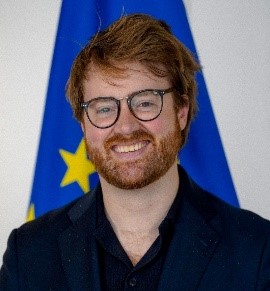
Meet Alex Moltzau, a leading expert in AI policy at the European AI Office of the European Commission, where he focuses on the responsible development and application of artificial intelligence (AI) to promote global sustainability. Alex's multifaceted background includes programming, design, data science, social science, and significant roles in commercial retail, startup environments, and international NGOs. His notable achievements include founding the 'earthpreneurs' network, connecting 10,000 youth from over 100 countries in sustainability efforts, and his academic pursuits led him to earn two Master’s degrees—one in Social Data Science from the University of Copenhagen and another in Artificial Intelligence for Public Services from four technical European universities. Professionally, Alex has worked in risk consulting at KPMG Norway, focusing on AI applications, and has led policy and ethics in Norway's largest national AI research collaboration. His writing and research have extensively covered AI's intersection with climate change and public sector applications. Join us to gain insights from Alex's diverse experience and his strategic approach to shaping AI policy for sustainable and ethical development worldwide.
 Meet Nenad Filipovic, Director of Science Fund of Republic Serbia and Vice-director of BIOIRC Bioengineering Research Center, former Rector of University of Kragujevac, Serbia, full Professor at Faculty of Engineering and Head of Center for Bioengineering at University of Kragujevac, Serbia. He was Research Associate at Harvard School of Public Health in Boston, US. His research interests are in the area of computational mechanics, artificial intelligence, biomedical engineering, cardiovascular disease, fluid-structure interaction, biomechanics, bioinformatics, biomedical image processing, medical informatics, multi-scale modeling, software engineering, parallel computing, computational chemistry and bioprocess modeling. He is author and co-author 11 textbooks and 9 monographies, over 400 publications in peer review journals and over 10 software for modeling with finite element method and discrete methods from fluid mechanics and multiphysics. He also leads a number of national and international projects in EU and US in area of bioengineering, artificial intelligence and software development. He leads joint research projects with Harvard University and University of Texas in area of bio-nano-medicine computer simulation. He also leads a number of national and international projects in area of bioengineering and bioinformatics. He is Editor in Chief for EAI Endorsed Transaction on Bioengineering and Bioinformatics and EAI Endorsed Transactions on Pervasive Health and Technology, Managing Editor for Journal of Serbian Society for Computational Mechanics, President of Serbian Society of Mechanics and member of European Society of Biomechanics (ESB), European Society for Artificial Organs (ESAO) and IEEE member.
Meet Nenad Filipovic, Director of Science Fund of Republic Serbia and Vice-director of BIOIRC Bioengineering Research Center, former Rector of University of Kragujevac, Serbia, full Professor at Faculty of Engineering and Head of Center for Bioengineering at University of Kragujevac, Serbia. He was Research Associate at Harvard School of Public Health in Boston, US. His research interests are in the area of computational mechanics, artificial intelligence, biomedical engineering, cardiovascular disease, fluid-structure interaction, biomechanics, bioinformatics, biomedical image processing, medical informatics, multi-scale modeling, software engineering, parallel computing, computational chemistry and bioprocess modeling. He is author and co-author 11 textbooks and 9 monographies, over 400 publications in peer review journals and over 10 software for modeling with finite element method and discrete methods from fluid mechanics and multiphysics. He also leads a number of national and international projects in EU and US in area of bioengineering, artificial intelligence and software development. He leads joint research projects with Harvard University and University of Texas in area of bio-nano-medicine computer simulation. He also leads a number of national and international projects in area of bioengineering and bioinformatics. He is Editor in Chief for EAI Endorsed Transaction on Bioengineering and Bioinformatics and EAI Endorsed Transactions on Pervasive Health and Technology, Managing Editor for Journal of Serbian Society for Computational Mechanics, President of Serbian Society of Mechanics and member of European Society of Biomechanics (ESB), European Society for Artificial Organs (ESAO) and IEEE member.
Meet Alvaro Fernandez Quilez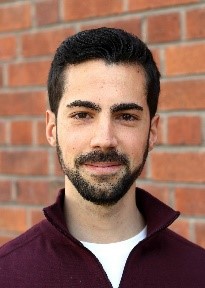 , associate professor in AI and leader of Stavanger AI Laboratory at the University of Stavanger (UiS). Fernandez Quilez holds a PhD in applies in AI in medicine, and background in telecommunications and biomedical engineering. His approach to AI research is strongly influenced by his technical and signal processing roots, but also by his extensive experience closely working with clinicians. His research areas of interest include trustworthy and knowledge-driven AI, and more generally, challenges related to reaching clinically useful AI developments.
, associate professor in AI and leader of Stavanger AI Laboratory at the University of Stavanger (UiS). Fernandez Quilez holds a PhD in applies in AI in medicine, and background in telecommunications and biomedical engineering. His approach to AI research is strongly influenced by his technical and signal processing roots, but also by his extensive experience closely working with clinicians. His research areas of interest include trustworthy and knowledge-driven AI, and more generally, challenges related to reaching clinically useful AI developments.
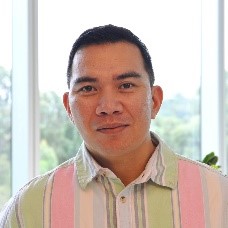
Meet Dr. Yves Saint James Aquino (he/him), a renowned physician and philosopher with expertise in ethics and the philosophy of medicine. His research delves into the ethical, legal, and social dimensions of AI in healthcare, as well as issues like cosmetic surgery ethics, social justice in health, and public health ethics. Dr. Aquino is a research fellow at the University of Wollongong's Australian Centre for Health Engagement, Evidence and Values (ACHEEV) and a member of Wiser Healthcare, which aims to reduce overdiagnosis and overtreatment worldwide. He is an editor-in-chief of Research Ethics (SAGE) and co-leads the Empirical Bioethics Stream of the Australasian Association of Bioethics and Health Law. Join us to explore his profound insights and contributions to these critical fields.
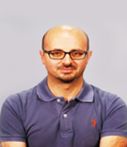
Meet Francesco Mercaldo, a Researcher at the University of Molise in Campobasso, Italy. He was a post-doctoral research fellow at the Institute of Informatics and Telematics of the National Research Council of Italy (CNR) in Pisa. In July 2015, he received the PhD in Information Engineering from the Department of Engineering, University of Sannio. He received the Laurea in Computer Engineering from the University of Sannio, Italy, in 2012. The research areas of Francesco are related to data mining and knowledge extraction, with a particular emphasis on image processing and analysis through the adoption deep learning techniques. Within this domain, he is working to enhance the explainability of model predictions, striving to make the decision-making process of artificial intelligence models more transparent and interpretable. This is especially critical in domains where trust, reliability, and actionable insights are paramount as cybersecurity and healthcare. He is co-author of about 250 publications including international conference proceedings and international journals, in addition to being the organizer of several workshops in international conferences.
 Meet Dr. Constantinos Patsakis, an associate professor at the University of Piraeus' Department of Informatics and an adjunct researcher at the Athena Research and Innovation Centre's IMIS. Dr. Patsakis holds a Mathematics degree from the University of Athens and an M.Sc. in Information Security from Royal Holloway, University of London, culminating in a Ph.D. in Security from the University of Piraeus. His research focuses on cryptography, security, privacy, and data anonymization. Dr. Patsakis has previously held positions as a Researcher at the UNESCO Chair in Data Privacy at Rovira i Virgili University, a Research Fellow at Trinity College Dublin, and a Senior Researcher at the Luxembourg Institute of Science and Technology. He is an editor for journals such as Computers and Security, International Journal of Information Security, and Blockchain: Research and Applications. His publications are available on Google Scholar and DBLP. Join us in welcoming Dr. Patsakis, who brings a rich background and deep expertise to our webinar.
Meet Dr. Constantinos Patsakis, an associate professor at the University of Piraeus' Department of Informatics and an adjunct researcher at the Athena Research and Innovation Centre's IMIS. Dr. Patsakis holds a Mathematics degree from the University of Athens and an M.Sc. in Information Security from Royal Holloway, University of London, culminating in a Ph.D. in Security from the University of Piraeus. His research focuses on cryptography, security, privacy, and data anonymization. Dr. Patsakis has previously held positions as a Researcher at the UNESCO Chair in Data Privacy at Rovira i Virgili University, a Research Fellow at Trinity College Dublin, and a Senior Researcher at the Luxembourg Institute of Science and Technology. He is an editor for journals such as Computers and Security, International Journal of Information Security, and Blockchain: Research and Applications. His publications are available on Google Scholar and DBLP. Join us in welcoming Dr. Patsakis, who brings a rich background and deep expertise to our webinar.
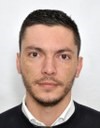 Meet Dusko Milojevic, a doctoral researcher at the Centre for IT & IP Law. He earned his Law degree and a master’s in law from the University of Belgrade. As a Chevening scholar, Dusko had the opportunity to further his studies in the UK, where he obtained a master’s degree in social science from the University of Manchester. Before joining CiTiP, he served as the Head of Department at the Ministry of Administration and Local Self-Government in Bosnia and Herzegovina. Dusko is currently pursuing his PhD in technology and law and is actively involved in the CYLCOMED project under the supervision of Prof. Jan De Bruyne.
Meet Dusko Milojevic, a doctoral researcher at the Centre for IT & IP Law. He earned his Law degree and a master’s in law from the University of Belgrade. As a Chevening scholar, Dusko had the opportunity to further his studies in the UK, where he obtained a master’s degree in social science from the University of Manchester. Before joining CiTiP, he served as the Head of Department at the Ministry of Administration and Local Self-Government in Bosnia and Herzegovina. Dusko is currently pursuing his PhD in technology and law and is actively involved in the CYLCOMED project under the supervision of Prof. Jan De Bruyne.
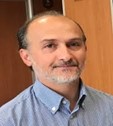 Meet Giancarlo Fortino (IEEE Fellow 2022), Full Professor of Computer Engineering at the Dept of Informatics, Modeling, Electronics, and Systems of the University of Calabria (Unical), Italy. He received a PhD in Computer Engineering from Unical in 2000. He is also distinguished professor at Wuhan University of Technology and Huazhong Agricultural University (China), high-end expert at HUST and NIST (China), senior research fellow at the Italian ICAR-CNR Institute, CAS PIFI visiting scientist at SIAT – Shenzhen, and Distinguished Lecturer for IEEE Sensors Council and SMS society. He was also visiting researcher at ICSI, Berkeley (USA), in 1997 and 1999 and visiting professor at Queensland University of technology in 2009. At Unical, he is the Rector’s delegate to Int’l relations, the chair of the PhD School in ICT, the director of the Postgraduate Master course in INTER-IoT, and the director of the SPEME lab as well as co-chair of Joint labs on IoT established between Unical and WUT, SMU and HZAU Chinese universities, respectively. Fortino is currently the scientific responsible of the Digital Health group of the Italian CINI National Laboratory at Unical. He is Highly Cited Researcher 2020-2024 in Computer Science by Clarivate (the only Italian professor ranked). He had 25+ highly cited papers in WoS, and h-index=84 with about 30000 citations in Google Scholar. His research interests include wearable computing systems, e-Health, Internet of Things, and agent-based computing. He is author of 750+ papers in int’l journals, conferences and books. He is (founding) series editor of IEEE Press Book Series on Human-Machine Systems and EiC of Springer Internet of Things series and AE of premier int'l journals such as IEEE TASE (senior editor), IEEE TAFFC-CS, IEEE THMS, IEEE T-AI, IEEE IoTJ, IEEE SJ, IEEE JBHI, IEEE SMCM, IEEE OJEMB, IEEE OJCS, Information Fusion, EAAI, etc. He chaired many int’l workshops and conferences (130+), was involved in a huge number of int’l conferences/workshops (700+) as IPC member, is/was guest-editor of many special issues (80+). He is cofounder and CEO of SenSysCal S.r.l., a Unical spinoff focused on innovative IoT systems, and recently cofounder and vice-CEO of the spin-off Bigtech S.r.l, focused on big data, AI and IoT technologies. Fortino is currently AVP of the Cybernetics area of the IEEE SMCS and former member of the IEEE SMCS BoG and former chair of the IEEE SMCS Italian Chapter.
Meet Giancarlo Fortino (IEEE Fellow 2022), Full Professor of Computer Engineering at the Dept of Informatics, Modeling, Electronics, and Systems of the University of Calabria (Unical), Italy. He received a PhD in Computer Engineering from Unical in 2000. He is also distinguished professor at Wuhan University of Technology and Huazhong Agricultural University (China), high-end expert at HUST and NIST (China), senior research fellow at the Italian ICAR-CNR Institute, CAS PIFI visiting scientist at SIAT – Shenzhen, and Distinguished Lecturer for IEEE Sensors Council and SMS society. He was also visiting researcher at ICSI, Berkeley (USA), in 1997 and 1999 and visiting professor at Queensland University of technology in 2009. At Unical, he is the Rector’s delegate to Int’l relations, the chair of the PhD School in ICT, the director of the Postgraduate Master course in INTER-IoT, and the director of the SPEME lab as well as co-chair of Joint labs on IoT established between Unical and WUT, SMU and HZAU Chinese universities, respectively. Fortino is currently the scientific responsible of the Digital Health group of the Italian CINI National Laboratory at Unical. He is Highly Cited Researcher 2020-2024 in Computer Science by Clarivate (the only Italian professor ranked). He had 25+ highly cited papers in WoS, and h-index=84 with about 30000 citations in Google Scholar. His research interests include wearable computing systems, e-Health, Internet of Things, and agent-based computing. He is author of 750+ papers in int’l journals, conferences and books. He is (founding) series editor of IEEE Press Book Series on Human-Machine Systems and EiC of Springer Internet of Things series and AE of premier int'l journals such as IEEE TASE (senior editor), IEEE TAFFC-CS, IEEE THMS, IEEE T-AI, IEEE IoTJ, IEEE SJ, IEEE JBHI, IEEE SMCM, IEEE OJEMB, IEEE OJCS, Information Fusion, EAAI, etc. He chaired many int’l workshops and conferences (130+), was involved in a huge number of int’l conferences/workshops (700+) as IPC member, is/was guest-editor of many special issues (80+). He is cofounder and CEO of SenSysCal S.r.l., a Unical spinoff focused on innovative IoT systems, and recently cofounder and vice-CEO of the spin-off Bigtech S.r.l, focused on big data, AI and IoT technologies. Fortino is currently AVP of the Cybernetics area of the IEEE SMCS and former member of the IEEE SMCS BoG and former chair of the IEEE SMCS Italian Chapter.
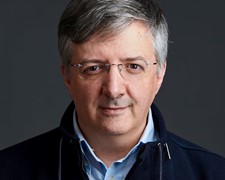 Meet Nuno M. Garcia, a PhD in Computer Science Engineering from the Universidade da Beira Interior (UBI, Covilhã, Portugal) (2008) and is a 5-year BSc in Mathematics / Informatics (Hons.) also from UBI (1999-2004). He was an entrepreneur (1988-2004), member of the Research Team at Siemens SA (2004-2007) and Nokia Siemens SA (2007-2008), and Head of Research at PLUX SA (2008-2010). Currently he is Full Professor at the Faculty of Sciences, University of Lisbon, and member of the research team of the Institute of Biophysics and Biomedical Engineering. He is also Chair of the Board of Directors of FCiências.ID (2025-2028) (www.fciencias-id.pt). He was the founder and is a senior researcher of the Assisted Living Computing and Telecommunications Laboratory (ALLab, 2010), a research group within the Instituto de Telecomunicações at UBI. He was also co-founder and Chair of the Executive Council of the BSAFE LAB – Law enforcement, Justice and Public Safety Research and Technology Transfer Laboratory, a multidisciplinar research laboratory in UBI (2015-2023). Since 2010, he has participated as Principal Investigator, Coordinator, Local Coordinator or Researcher of several European or national Research projects. The approval ratios for the different ERASMUS+ projects are around 10% and for the COST Action are around 5%, according to the last reported data. The funds he directly managed for these projects surpass the 5.9 M€. For the two research groups, a total of 20 projects have been or are managed, of them, 8 as Principal Investigator, and 12 as Coordinator of the research team. He was the founder and coordinator of the Cisco Academy at UBI (2010-2020) and was Chair of the COST Action IC1303 AAPELE – Architectures, Algorithms and Platforms for Enhanced Living Environments (Brussels, Belgium, 2013-2017). He was identified as one of the world top 2% most influential researchers for the years 2019 and 2020 (Ioannidis JPA, Boyack KW, Baas J (2020) Updated science-wide author databases of standardized citation indicators. PLoS Biol 18(10): e3000918. https://doi.org/10.1371/journal.pbio.3000918). He is member of ISOC and of the Non-Commercial Users Constituency, a group within GNSO in ICANN. His main interests include predictive algorithms for healthcare and well-being, distributed and cooperative algorithms, and the battle for a Free and Open Internet.
Meet Nuno M. Garcia, a PhD in Computer Science Engineering from the Universidade da Beira Interior (UBI, Covilhã, Portugal) (2008) and is a 5-year BSc in Mathematics / Informatics (Hons.) also from UBI (1999-2004). He was an entrepreneur (1988-2004), member of the Research Team at Siemens SA (2004-2007) and Nokia Siemens SA (2007-2008), and Head of Research at PLUX SA (2008-2010). Currently he is Full Professor at the Faculty of Sciences, University of Lisbon, and member of the research team of the Institute of Biophysics and Biomedical Engineering. He is also Chair of the Board of Directors of FCiências.ID (2025-2028) (www.fciencias-id.pt). He was the founder and is a senior researcher of the Assisted Living Computing and Telecommunications Laboratory (ALLab, 2010), a research group within the Instituto de Telecomunicações at UBI. He was also co-founder and Chair of the Executive Council of the BSAFE LAB – Law enforcement, Justice and Public Safety Research and Technology Transfer Laboratory, a multidisciplinar research laboratory in UBI (2015-2023). Since 2010, he has participated as Principal Investigator, Coordinator, Local Coordinator or Researcher of several European or national Research projects. The approval ratios for the different ERASMUS+ projects are around 10% and for the COST Action are around 5%, according to the last reported data. The funds he directly managed for these projects surpass the 5.9 M€. For the two research groups, a total of 20 projects have been or are managed, of them, 8 as Principal Investigator, and 12 as Coordinator of the research team. He was the founder and coordinator of the Cisco Academy at UBI (2010-2020) and was Chair of the COST Action IC1303 AAPELE – Architectures, Algorithms and Platforms for Enhanced Living Environments (Brussels, Belgium, 2013-2017). He was identified as one of the world top 2% most influential researchers for the years 2019 and 2020 (Ioannidis JPA, Boyack KW, Baas J (2020) Updated science-wide author databases of standardized citation indicators. PLoS Biol 18(10): e3000918. https://doi.org/10.1371/journal.pbio.3000918). He is member of ISOC and of the Non-Commercial Users Constituency, a group within GNSO in ICANN. His main interests include predictive algorithms for healthcare and well-being, distributed and cooperative algorithms, and the battle for a Free and Open Internet.
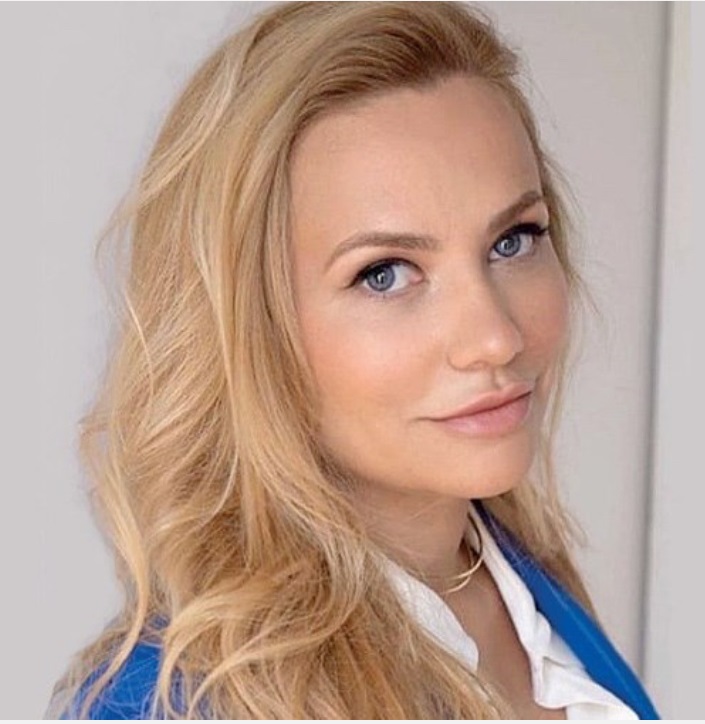
Meet Sofia Couto da Rocha, an MD with long-standing experience in the field. She dedicates herself toinnovation, digital transformation and smart aging using technology as a streamline for precision medicine. She completed her MBA at The Lisbon MBA, a minor in Political Science from NOVA and a BA in Design in London. Masters in longevity related subjects in four universities. After earned a scholarship for the IWI at MIT engineering Boston and one for Clinical Research from Harvard Medical School, she focused her research in innovation and technology for healthcare. Awarded in Biotechnology, Leadership and Digital, among others the Global Impact Challenge of Singularity University, which made her last startup kick off in Silicon Valley at the NASA Campus, the SAGES Clinical Services 2021 Shining Bright, leading the best 2023 innovation project for healthcare by the European private hospitalsassociation – Lusi.
She was the president of the IT commission of the initiative Health Parliament Portugal for 3 years, being currently Medical officer at Patient Innovation and Untech, and a member of the council for information Technologies of the National Medical Council.
As a fighter for equal opportunities, she was invited to be part of the women Leaders global forum, since 2018. She teaches about innovation and new technologies applied to healthcare.
Nowadays, leads innovation and the virtual Client at Lusíadas Saúde, one of the largest private health groups in Portugal, part of Vivalto Santé.
Webinar Chairs
 Name: Dr. Habtamu Abie
Name: Dr. Habtamu Abie
Email:
novr@ae.abon.rn@eiba
Affiliation: Norsk Regnesentral (Norwegian Computing Center, NR), 0373 Oslo, Norway
Biography: Habtamu Abie, Ph.D., is currently a Chief Research Scientist and Digital Security Area Leader at NR, and SFI NORCICS IT-OT Integration Fucus Area Leader. He received his B.Sc., M.Sc., and Ph.D. from the University of Oslo, and has many years of experience in computing, both as a practitioner and researcher. He has a solid and extensive background in the design and development of real-time systems and the design, modeling, and development of adaptive security for distributed computing systems. His current research interests include adaptive security, critical infrastructure protection, cybersecurity, adaptive threat hunting and intelligence, risk management, 5G and beyond, Internet of Things, and Adaptive AI and digital twins for enhancing cybersecurity and resilience. Member of EURASC (European Academy of Sciences). IEEE Senior Member. Fellow of AAIA and AIIA.
 Name: Dr. Sandeep Pirbhulal
Name: Dr. Sandeep Pirbhulal
Email:
fnaqrrc@ae.abon.rn@peednas
Affiliation: Norsk Regnesentral (Norwegian Computing Center, NR), 0373 Oslo, Norway
Biography: Dr. Sandeep Pirbhulal is currently working as Senior Research Scientist at the Norwegian Computing Center, Norway. His current research focuses on cybersecurity and resilience, tele-healthcare, digital twins for cybersecurity, 5G and beyond enabled IoT security. He is Project Leader of International Alliance for Strengthening Cybersecurity and Privacy in Healthcare (CybAlliance), funded by the Research Council of Norway (2023-2028). He has been also participating in several HORIZON EU and national projects including, FAME (2023-2025), ENFIELD (2023-2025), EU-CIP (2022-2025), NORCICS (2020-2028), DeHelse (1-12/2024). He is an editorial board member of Springer International Journal of Information Security (since 2022), International Journal on Smart Sensing and Intelligent Systems (since 2023), Signals Journal (since 2020). He is the Organizing Chair of the D’IoT (2019-2022, 2024-2025) in conjunction with the IEEE VTC, and SecIndustry 2023-2024 in conjunction with ARES. He is also co-organizing chair of SecASure 2022-2024 in conjunction with ESORICS, SUNRISE 2023-2024 in conjunction with NIKT.
Sponsors:

